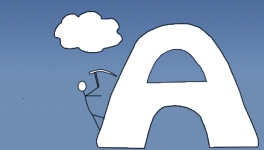« Spies…Everywhere | Main | Why I Won’t Vote for Obama »
My Visa Credit Line Just Increased
By Chris | October 12, 2008
By 25%. I wouldn’t know we were in a “credit crunch” if I wasn’t reading the news. About 3 weeks ago Alex Tabarrok wrote a post pointing to evidence that consumer, industrial, and real estate loans are at all time highs. While these numbers don’t include the latest data, housing prices have been sliding for quite some time now. Shouldn’t the credit markets have contracted over the last year?
Financial institutions are certainly spooked. Plummeting short-term treasury yields indicate that investors are seeking the safety of short-term government bonds. Overnight LIBOR rates have oscillated violently and the market for commercial paper has dried up while overnight rates have doubled. This Economist article does a good job describing the extent of the crisis:
Almost every country’s banking system is stricken with three interrelated problems: having taken huge losses, the banks need capital; because they cannot borrow in the longer-term paper markets, they are short of the funds they need to finance the share of their assets not covered by their deposits; and because the short-term money markets are closed, the banks are cut off from their main source of liquidity.
The decline in housing prices has left a lot of financial institutions insolvent and short of capital. It is not surprising that it has become more expensive for corporations and municipalities to access credit. I think the Federal Reserve has taken the right steps by pumping money into the financial system. However, I strongly opposed the Paulson Plan.
The Paulson Plan attempts to solve the current credit crunch by paying financial institutions more for MBS than their current market price. By purchasing these toxic assets, the Treasury hopes to recaptialize financial institutions and decrease their need for capital. I don’t like the plan because:
1. The housing market was grossly inflated. In my opinion, the housing bubble was the primary cause of the whole fiasco. The secondary mortgage market made things worse, but ultimately, the whole house of cards was built on the assumption that housing prices would keep rising. We still don’t know how much further housing prices will fall. Authorizing the government to blindly buy MBS does little more than transfer the losses from shareholders to taxpayers (reverse auctions won’t work if the quality of the mortgages is unknown by the government).
2. We need to reduce the bloated financial industry. I remember as an undergraduate finance major hearing that wages in the finance industry had outpaced all other starting occupations. I should have been suspicious. The Paulson Plan saves those institutions which have made the most egregious mistakes. The last thing we want to do is put these dying beasts on life support.
3. It crowds out private investment. Shortages only exist under price controls. Someone is willing to buy subprime mortgages if the price is right. The Paulson Plan encourages troubled institutions to wait to see what they can get from the government before selling their wares on the private market. This will lengthen the recovery process.
4. The Paulson Plan encourages risky behavior in the future. But, we can’t worry about moral hazard at a time like this you say. The entire financial system is on the brink of collapse. You’re wrong. The precedent the government sets right now will influence the actions of future financial institutions. Talk is cheap after the fact. If we want to discourage financial institutions from taking excessive risks, we need to convince them that they will not be bailed out. The only way to do that credibly is by letting them fail in the heat of the moment. It may be costly in the short-run, but it will pay dividends in the long-run.
The Paulson Plan received a lot of support from Economists who felt that we needed to do something to restore confidence in the economy. Others placed their trust in Bernanke’s wisdom. There is a chance that we could be heading into the greatest economic decline since the Great Depression. However, the market is resilient. Banks are still sending out credit card offers and offering poor graduate students more credit. The economy has lost a lot of wealth that never really existed in the first place. It is bound to endure some damage as the housing market comes back down to earth. Bubbles are scary. And, economists don’t understand why they happen. Nevertheless, we must resist the urge to embrace government as the solution to our economy’s woes. Markets are versatile and flexible, but the precedents and regulations we create today will be with us for decades to come.
Topics: Economics, Markets | No Comments »


